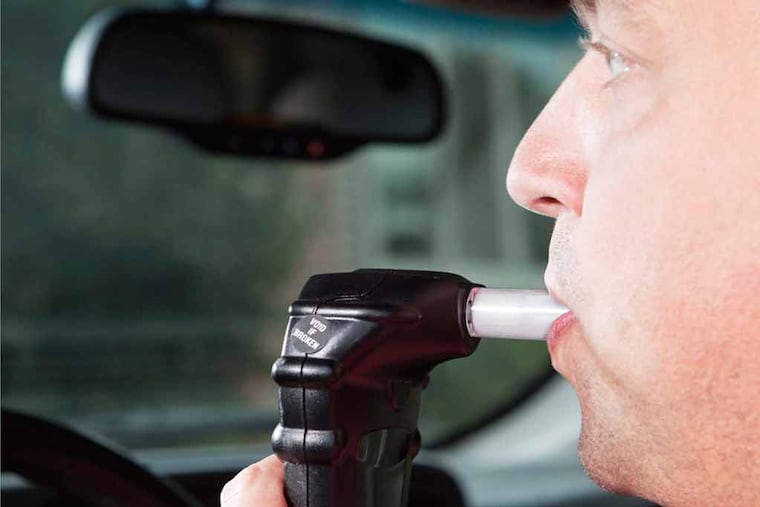Interlock devices can prevent DUI deaths
People used to ask my mother, "Aren't you scared to raise kids in Manhattan?" That was in the 1980s, when the homicide rate there was six times what it is now, and every car had a sign saying, "Please do not break the window, the radio was already stolen."

People used to ask my mother, "Aren't you scared to raise kids in Manhattan?" That was in the 1980s, when the homicide rate there was six times what it is now, and every car had a sign saying, "Please do not break the window, the radio was already stolen."
But my mother always had her answer ready. She would say, "My kids will never get in a car with a drunk driver."
My mom was right - I rode the bus and the subway with people who had been drinking, but I never even had to turn down a ride from someone because they had been drinking until I was in college. I didn't learn much about drunk drivers until I became a physician.
Now, I think about the consequences of drunk driving all the time, either caring for patients injured in crashes, or breaking the news to the family of someone who did not survive. Not all my patients in crashes were drinking, but at the legal limit of 0.08 percent, the risk of a crash goes up 13 times.
Last year, there were 10,550 alcohol-related crashes in Pennsylvania, resulting in 7,300 injuries and 333 deaths, according to the state Department of Transportation. Drunk driving is a persistent problem across the country, but we can start to end it now. Ignition interlock devices prevent drunk driving directly: When one of these devices is installed, the driver must pass a Breathalyzer test or the car will not start. Pennsylvania should require these devices for everyone who has been convicted of drunk driving.
We have legal blood-alcohol content limits to prevent drunk driving, but police cannot be everywhere to enforce them. Among drivers whose licenses are suspended for drunk driving, more than half will continue to drive.
The automotive industry knows how to use technology to make driving safer: air bags are now standard and save lives in crashes. Interlock technology can do the same to help eliminate drunk driving.
Twenty-two states already require everyone convicted of drunk driving to install an interlock device. Pennsylvania requires interlocks only for repeat offenders. The Pennsylvania Senate recently passed Senate Bill 290 unanimously. This bill, sponsored by Sen. John C. Rafferty Jr., would introduce interlocks for drunk drivers, including first offenders, with blood-alcohol content of 0.10 percent or higher. The bill has been referred to the Pennsylvania House Transportation Committee, chaired by Rep. John Taylor of Philadelphia.
Critics suggest that interlocks are unreliable, or that drivers can circumvent them. But the technology is improving: Interlocks reduce repeat drunk driving arrests by between 50 and 90 percent, according to the National Highway Traffic Safety Administration.
Others might argue that the devices are intrusive, but in a national survey from the Insurance Institute for Highway Safety, 84 percent of Americans supported interlocks for all drunk-driving convictions, and most wanted them in every car. Even people who admit to drinking and driving agreed.
Pennsylvania can continue to expand the use of these lifesaving devices by requiring them for all drunk-driving convictions, by extending the length of time they remain installed, by making them more affordable, and by monitoring their use.
But that's not the entire answer, because studies show that on average, drivers who get arrested for DUI have already driven drunk 80 times before getting caught. Making interlocks a standard feature on new cars, like air bags, could reduce drunk-driving deaths by 90 percent by 2030, according to a University of Michigan study.
That translates to saving nearly 10,000 lives a year, on top of all the physical, emotional, and financial injuries that drunk driving causes. As a physician, I'd like nothing more than to lose this entirely preventable part of my business. Injuries remain the leading cause of death in the first four decades of life: There is plenty of other work for trauma centers.
Elinore Kaufman is a general surgery resident at New York-Presbyterian Cornell and a health policy researcher at the University of Pennsylvania.